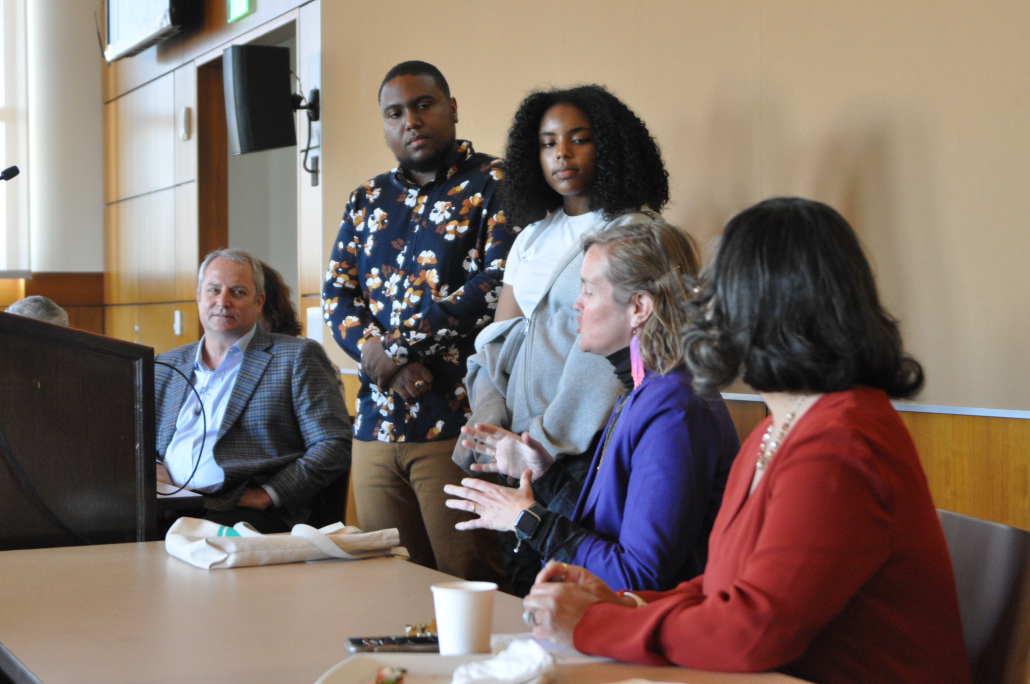Students filled the Tutor Campus Center Tuesday eager to engage with faculty on the topic of sustainability. The Student Sustainability Committee of the Presidential Working Group for Sustainability and the Environmental Student Assembly hosted about 20 participants at the event.
Six panelists attended the town hall to address student questions and concerns: Associate Director of Sustainability, Facilities Planning and Management Zelinda Welch, Associate Dean of Diversity, Equity and Inclusion LaVonna Blair Lewis, associate teaching professor of Environmental Studies Jill Sohm, Chief Sustainability Officer Mick Dalrymple, Office of Sustainability Associate Director Ellen Dux and distinguished professor of public policy Genevieve Guiliano.
The panel was moderated by two students — Sara Eyassu, a freshman majoring in environmental studies, and Jon-Marc Burgess, a freshman majoring in biological sciences — who asked the majority of the questions at the panel. The students opened by asking Dalrymple what he thinks is the biggest obstacle to a sustainable campus.
“Challenges are no short supply. We have 27 [very aggressive goals], they’re very concrete, and we’re making significant headway on them. It’s amazing actually, how much stuff we’ve done in such a short amount of time. But the biggest constraint is the typical one: resources,” Dalrymple said. “[There is potential for] private partnerships, it’s just a big fight to do all that.”
The conversation then switched to classes at USC, with Burgess asking Sohm how receptive faculty had been at incorporating sustainability into their courses. Under USC’s Sustainability Across the Curriculum Initiative, faculty can apply for grants if they teach a course connected to sustainability. Sohm said that while faculty had been fairly receptive, they were still looking to find more people who wanted to be involved in teaching sustainability at USC.
Lewis said that one of the most meaningful steps USC could take would be to recognize the knowledge the South Central community has regarding sustainability and their drive to improve environmental conditions.
“Yes, we have expertise because of our academic experience and the rigor, but the community has a whole different body of knowledge that will help us transform the work that we’re trying to do,” Lewis said. “So creating real partnerships with community organizations, I think are important … We’re not asking the community to come to the table as a junior partner, but as a full partner.”
The University has a multitude of projects in the works, Welch said, including plans to decarbonize USC. She also said there are plans to add more native plants to the landscape of USC, thus making it more sustainable as native plants require less water than foreign ones. However, former students and long-time faculty have been resistant to this change.
“We have alumni who come in, and they’re like, ‘This used to look like Harvard! Where’s all our green?’ Well, it’s different [than how the school used to look] … The beauty will look different when you look at something much more native,” Welch said.
